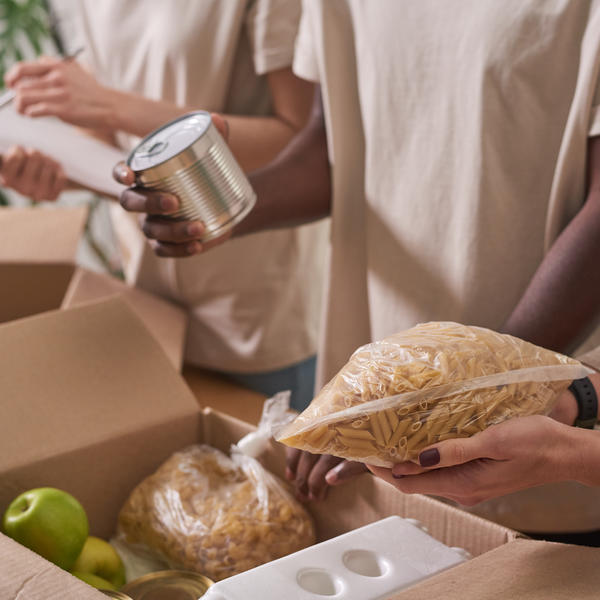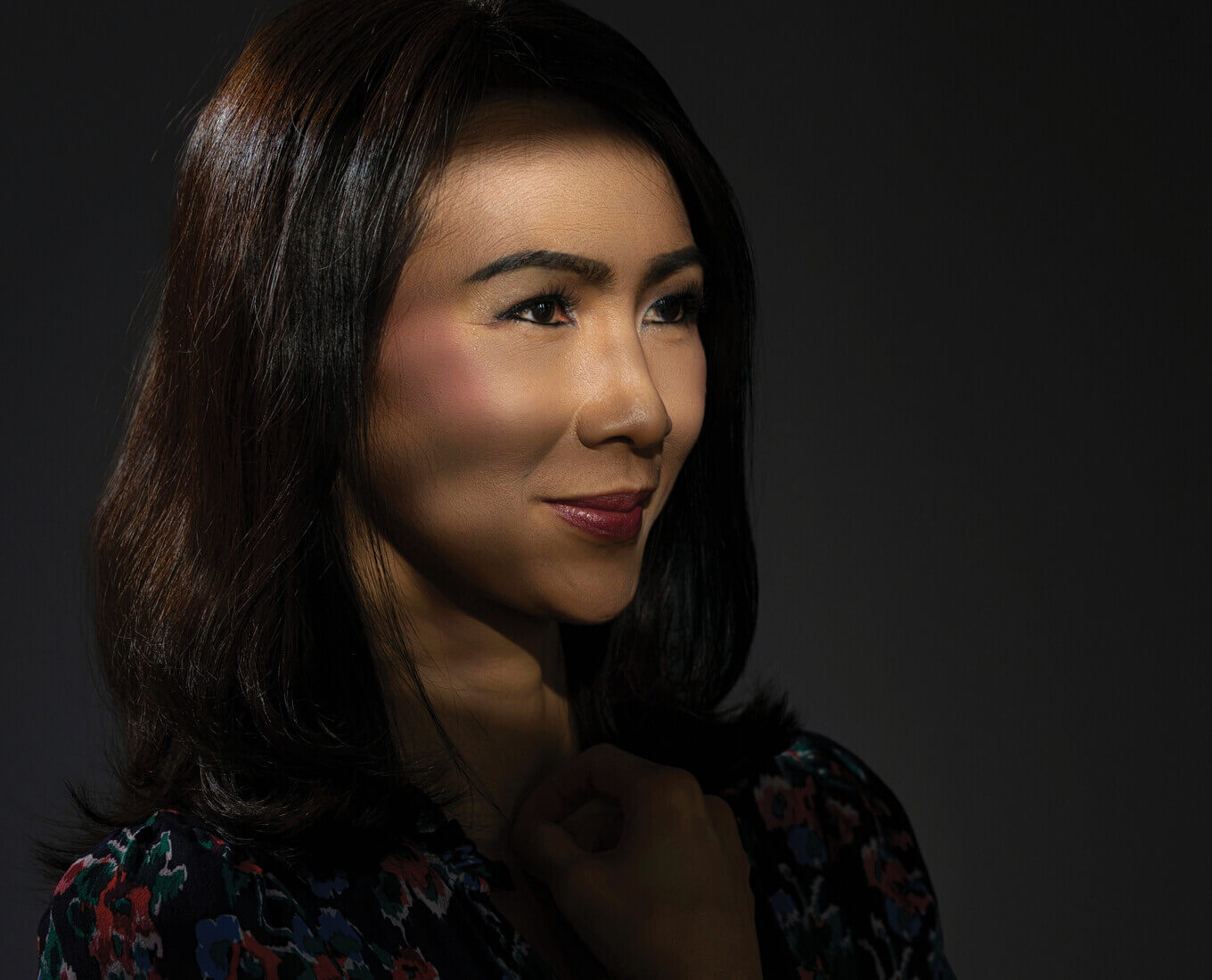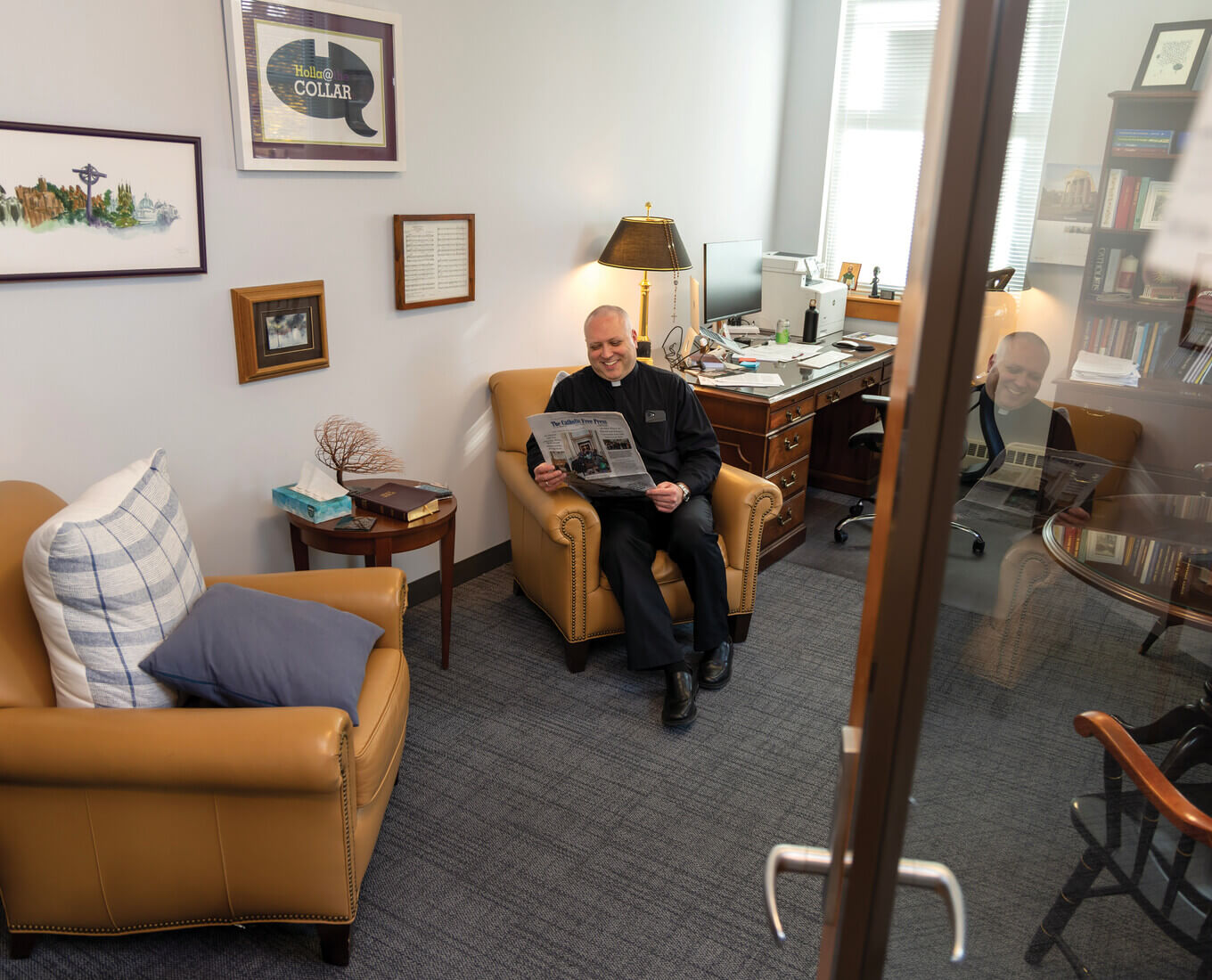Last year, 17 million American households were considered food insecure, up from 13.5 million in 2021, according to the U.S. Department of Agriculture. Within that community is a subset that is often overlooked: college students.
“This should be an issue that concerns everybody,” said Christopher Staysniak, a lecturer in the Holy Cross history department, whose scholarship includes American food and food systems.
“The presumption that all our students can afford and have access to food, and that we’re all equal, is not accurate,” said Daina Harvey, professor and chair of sociology and anthropology.
Food Insecurity Increasing
According to a recent study, roughly 23% of undergraduates and 12% of graduate students, or more than 4 million students, nationwide were experiencing food insecurity as of March 2020. Private four-year institutions represented nearly 19% of the total. In Massachusetts, the number has since increased to nearly 33% of students at some public colleges and universities.
“It’s very easy to make it seem like this is a problem for a specific group of people and it’s not,” said Angel Collazo ’26, a food justice advocate. “This can be anyone on campus and the responsibility to help make the change falls on those who have the power to do so and that is usually the institution.”
Prior to the onset of the COVID-19 pandemic, one Holy Cross student tried to start a food pantry at the College, but found that many who might have had a need would not have used the service because of the stigmatization of being food insecure, Harvey said. An informal survey by summer research students post-pandemic found that students might not identify as food insecure, but they were worried about access to food on campus and at home, he added.


